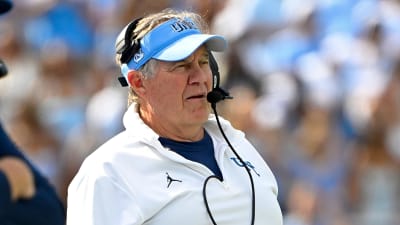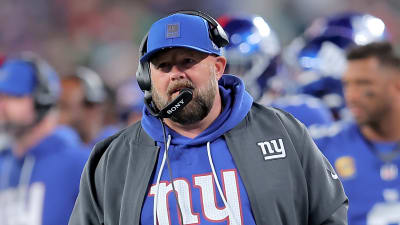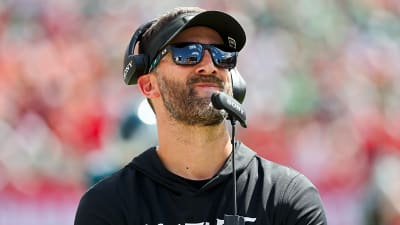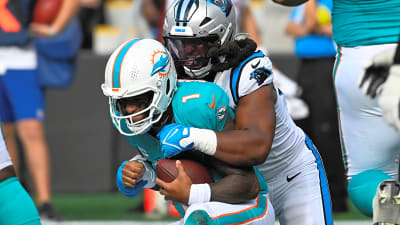
This past season was the first chance for Calgary Flames fans to see Dustin Wolf in a significant NHL role. I was surprised regarding the timing, as it felt like less of a conscious decision to call the young netminder up. Rather, it felt like a manager with his hand forced because of injuries to Jacob Markstrom and Dan Vladar. If not for those circumstances, it’s possible that we weren’t going to see Wolf in a consistent NHL role this season. The former WHL Top Goaltender and AHL Best Goaltender (among many other awards) essentially got a month-long tryout, but Wolf was working behind a team that had just dealt Noah Hanifin and Chris Tanev, so I’d take his rookie stats with a grain of salt.
As for what’s next, Dustin Wolf is an RFA and in need of a new contract. With only 18 NHL games and less-than-stellar base statistics in those games, it looks like Wolf could be signed to a short-term, low-AAV bridge or “prove-it” deal. However, if I were Wolf’s camp, I’d be curious about the NHL job security for Wolf. Upon analyzing some contract comparables and their NHL playing time, we can further understand what next year may hold for Wolf.
For context, Dustin Wolf is still ‘waiver-exempt’ next season, according to CapFriendly, with 62 games or 1 season remaining before he loses the exemption. This means that Wolf can be sent down to the AHL Wranglers next season at any time without having to go through waivers, giving the NHL club less pressure to keep him on the NHL roster since there is no risk of a waiver claim.
With Jacob Markstrom signed for 2 more seasons at a $6 million cap hit, and Dan Vladar signed next season at a $2.2 million cap hit, the Calgary Flames have committed $8.2 million into their goalies next year, and none of that has gone to Wolf, the 23-year-old RFA.
Goalies of similar ages and expiring RFAs like Samuel Ersson, Lukas Dostal, Joel Hofer, and Nico Daws had greater opportunities in the NHL last season than Wolf, with varying statistical results, but similar contract situations.
Ersson got $1.45 million x 2 years but played 51 games with slightly better numbers than Wolf’s 17-game stint. Dostal played 44 games on Anaheim last season, on a team that was not competing for the playoffs, and put up similar numbers to Wolf but was spectacular at the recent World Championship for gold-medal-winner Czechia (he is making $812,500 next year on his post-ELC ‘bridge’ deal). Hofer put up great numbers on St. Louis, one of the worst analytical teams this season, behind Jordan Binnington, and is making $775,000 next year on his post-ELC ‘bridge’ deal. Daws put up similar numbers to Wolf, and is currently an unsigned RFA, with one more season of NHL experience than Wolf (25 games in 2021-22).
Based on the potential comparables above, Dustin Wolf is likely destined for a contract with a similar cap hit to his ELC (~$900,000). Wolf is also headed for another year of floating between the AHL and NHL unless a Flames goaltender is moved. The asset who was once one of the top prospects not playing in the NHL might not get a full-time NHL chance until his ‘age 24’ season in 2025-26, leaving more room for doubt in fans’ and critics’ eyes. Wolf is still an intriguing prospect, but I can’t see an NHL pathway for the netminder based on the current Flames roster construction (if no moves are made). It’s possible that this situation may affect Wolf’s confidence, knowing that he’s still a ‘backup to an NHL backup’ following his third full professional hockey season, and he’s won multiple awards in the AHL during this time.
This does not close the door for creativity regarding contract length, but most goalies in this situation have little leverage or NHL success to earn lengthier or more lucrative contracts.
In two years’ time, I’m curious if Wolf will still be playing for the Flames since next year is his last waiver-exempt season. The patience shown in the Flames’ approach to Wolf’s development is starting to cause NHL regulations like waivers to take effect, and these types of rules are in place to give NHL opportunities to players who may be considered ‘gate-kept’.
More must-reads:
- Bijan Robinson's record-breaking pace should make him early OPOY favorite over fellow star RB
- Three teams that should be in the market for Kyle Schwarber this offseason
- The 'NFL total touchdown pass leaders' quiz
Breaking News
Trending News
Customize Your Newsletter
 +
+
Get the latest news and rumors, customized to your favorite sports and teams. Emailed daily. Always free!








